Fluids are essential when it comes to keeping your vehicle running. Everyone pays enough attention to general fluids from the fuels to lubricating engine oils. Yet car coolant is often forgotten in the field of automotive maintenance. A global 2024 study revealed that 62% of urban vehicle owners overlook coolant maintenance, leading to increased engine repairs.
This essential liquid ensures your vehicle runs cool by preventing overheating. Understanding its importance, types, and generic maintenance tips can help enhance your car’s longevity and performance.
What is Car Coolant?
Car coolant (antifreeze) is a water and chemical mixture designed for heat absorption from the engine to distribute it efficiently.
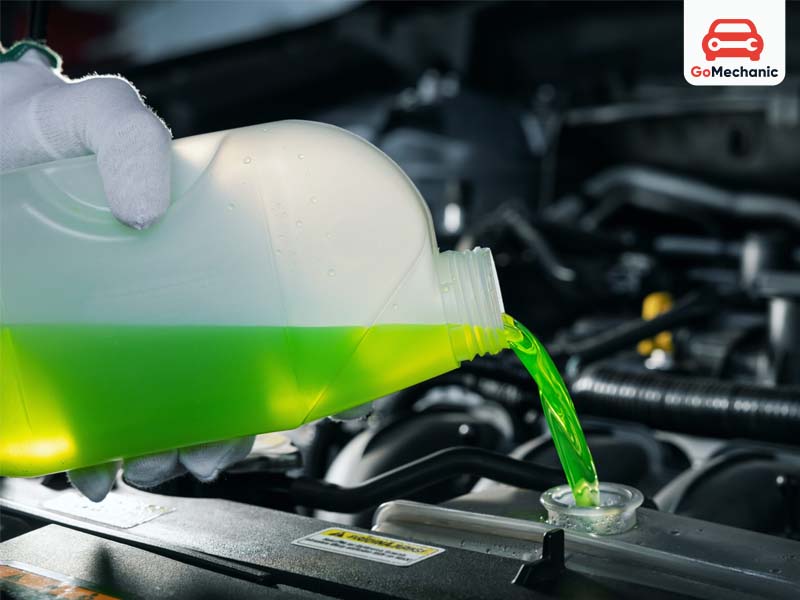
Its primary functions include maintaining the optimal operating temperature and protecting engine components.
Try: How Do Car Engines Work: Types Explained
Importance of Car Coolant
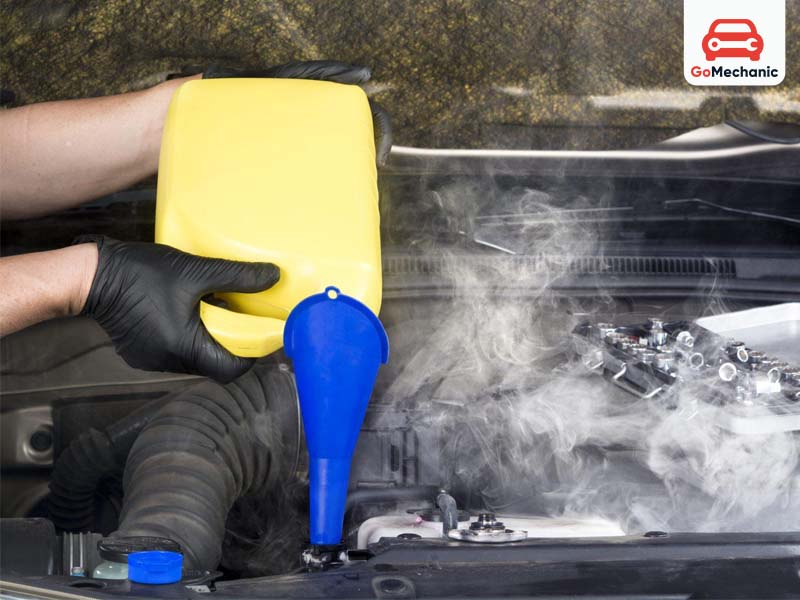
- Prevents overheating: Helps disperse combustion heat, protecting critical components.
- Corrosion shielding: Contains anti-corrosion additives that prevent rust in the system.
- Freezing protection: Lowers the freezing point of the liquid, ensuring the engine operates efficiently in cold weather.
Types of Car Coolant
Multiple car coolant types are available in the market, focusing on different vehicle segments. Here’s an overview:
| Type | Description | Benefits |
| Ethylene Glycol | Commonly used; provides excellent heat transfer | Affordable and effective |
| Propylene Glycol | Less toxic; safer for the environment | Ideal for hybrid and electric vehicles |
| Organic Acid Technology (OAT) | Longer life; contains organic acids | Prevents scale and corrosion |
| Hybrid Organic Acid Technology (HOAT) | Combines OAT and conventional coolants | Offers enhanced protection |
Must Read: Car Coolant Types Explained: Color Coding Details
How to Maintain Car Coolant
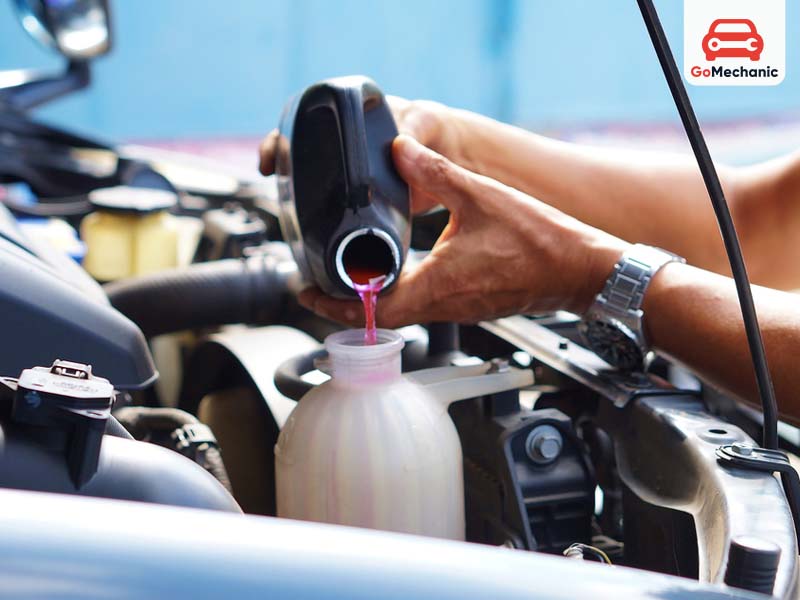
Regular maintenance of car coolant ensures your vehicle operates cool. Here are some practical tips:
- Check Coolant Levels Regularly: Inspect the coolant tank. A low level can lead to engine overheating. Pay extra attention during extreme seasons.
- Top Up Timely: If levels are low, top up with the correct type of coolant. Avoid using water as it can lead to corrosion and reduce effectiveness due to dilution.
- Change Coolant Periodically: Flush the cooling system as per manufacturer’s recommendation (usually every 2-3 years). This prevents the contaminant buildup.
- Inspect for Leaks: Never forget to check for leaks in hoses and connections.
How to Fill Coolant on Your Own
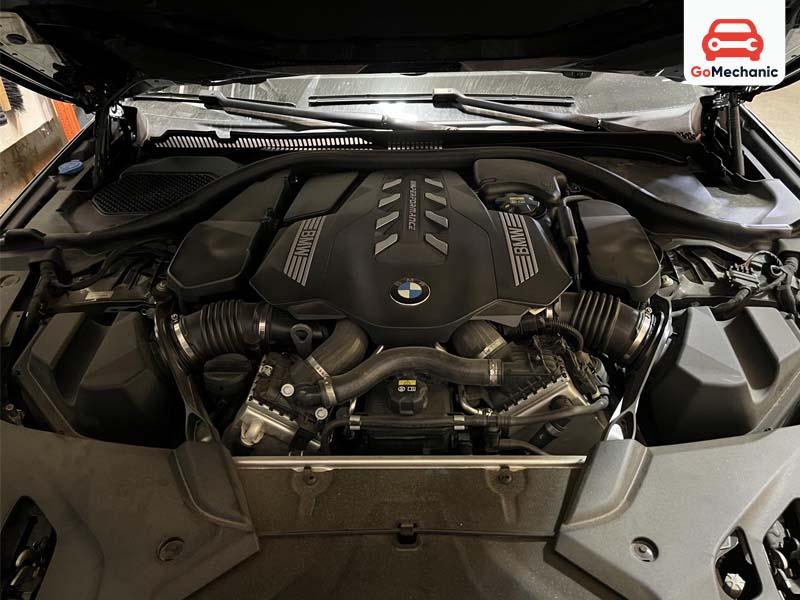
Topping up a car’s coolant is an easy task if done properly. Here’s an easy guide in 7 steps:
- Secure your Vehicle: Ensure the car is on a levelled surface.
- Locate the coolant reservoir: Open the hood and find the translucent plastic tank marked with “Min” and “Max” levels.
Important tip: Never open the reservoir when the engine is hot.
- Measure the level: If the coolant is below the minimum bar, it needs topping up.
- Prepare the coolant: Shake the coolant bottle well. If concentrated, mix it with distilled water per instructions (usually in a 1:1 ratio).
- Use a funnel to add coolant: Place a funnel in the opening before refilling to prevent spills.
Tip: Never overfill the reservoir.
- Secure the Cap and Check for Leaks: Replace the cap tightly to prevent leaks.
- Clean up: Wipe any spills and dispose of containers properly.
Common Questions: Car Coolant
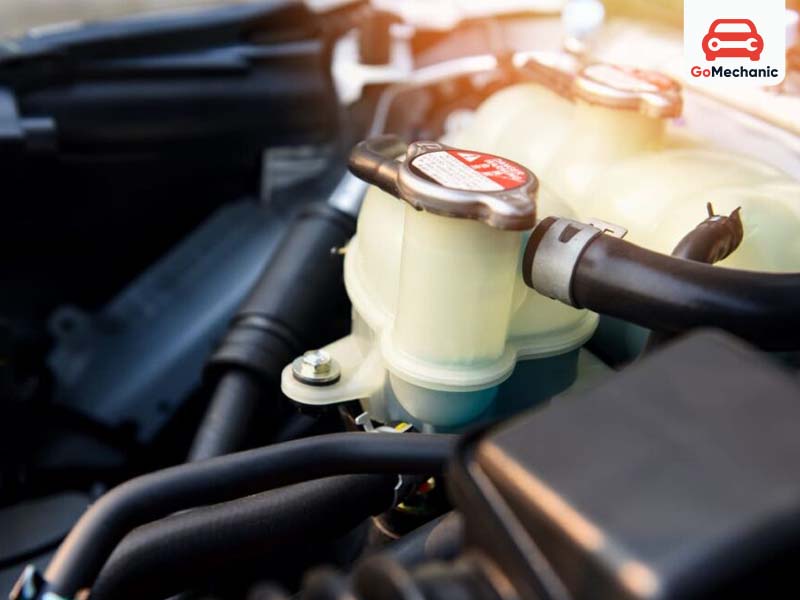
- Is it safe to drive with low coolant levels?
No. Low coolant levels cause the engine to overheat, potentially leading to severe vehicle damage. Refilling coolant should be the priority to prevent damage. - Can I put water as car coolant?
Water can be a temporary aid during an emergency. However, it is not a long-term solution as it dilutes protective additives. - How long does coolant last?
On average, car coolants last 2-5 years or 48,000 to 80,000 kilometres, depending on the type and usage conditions. - Can you add more coolant if the level is low?
Yes, but ensure the coolant matches the type specified for your vehicle. Mixing types can lead to issues.
Conclusion
Keeping your car coolant topped is equivalent to shielding for your engine’s health. By applying the best coolant practices, you can safeguard your vehicle’s longevity.
Don’t wait for problems to come your way—make coolant care a priority. For more tips on car maintenance, consider consulting GoMechanic today!





